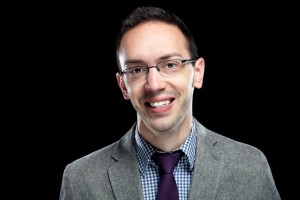 The following post was written by Kevin Harris, Director of Community Relations at The Marin Foundation.
The following post was written by Kevin Harris, Director of Community Relations at The Marin Foundation.
In my work at The Marin Foundation, it’s a relatively common thing to come across posts written about how to be an ally in relationship to the LGBT community (a recent example). Considering that variations of such lists have been written hundreds of times, I thought I would instead focus on a couple main ideas that I have found helpful and am trying to live into as I (a Christian that is gay) seek to engage and live into relationship with those that are seeking to faithfully walk alongside their LGBT brothers and sisters (or be an ally).
I’ve found it helpful to seek to hold my ideals in tension with acknowledging intentions, effort, and actions that fall short of my ideals that I still consider to be beneficial in some capacity.
With regards to ideals, I’m essentially talking about what we see everyday on blogs with everyone’s varying best case scenarios for how they as LGBT individuals should be treated personally by others and advocated for. Being created in the image of God, everyone is invested with inherent worth, dignity, and beauty. As a result, I believe that we can each hold to a standard for how we expect to be treated that is in accordance with the implications of being a child of God and not settle for less.
The difficult part comes in with acknowledging good intentions, positive efforts, and sacrifices that fall short of our ideals. Considering that everyone is in process, we’re often as likely to encounter intentions and actions that are somewhere on a spectrum between positive and negative along with those that are simply right or wrong. Where there is nuance to be found, we can seek to find the good and encourage it. If we cannot go beyond our ideals (while still upholding them), we’re less likely to be opened to gratitude in the ways that we’re able to acknowledge that individuals are taking steps forward or at least making an effort. In the video below, Ash Beckham, shared a poignant talk about the closets that all people face in their lives and she shared a story about her sister’s wedding that involved meeting individuals where they were at and acknowledging that they were trying when she would have not been out of line to call them out on their misguided attempts to show that they accepted her. The story starts around seven minutes, though the whole talk is worth watching if you haven’t seen the talk before.
With that being said, I’m not trying to imply that LGBT individuals should be subjecting themselves to environments that could be harmful to their personhood or faith for the benefit of others working out their beliefs. The responsibility of LGBT individuals of faith (along with everyone else) is primarily to become the whole persons that God created them to be in order to serve and glorify God. Safe spaces and individuals that are able to speak empowering words are needed to be able to develop into individuals that possess a healthy sense of self to give out of. Neither am I trying to imply that individuals should be trying to live into a type of queer Uncle Tom image that is subserviently doling out praise for scraps. But as a Christian, I’m wondering about the intersection of bringing our whole unapologetic selves into difficult situations as they arise with learning to extend grace and give of ourselves in ways contribute to reconciliation and that allow for others to more fully step into treating LGBT individuals in ways aligning with their God given worth, dignity, and beauty.
I realize that unequal power dynamics can make such conversations difficult and at times dangerous, though I have found that learning to hold these conflicting ideas in tension can help to move conversations forward. What have you found to be helpful as you’re engaging with individuals that are seeking to be allies to the LGBT community?
Much love.











